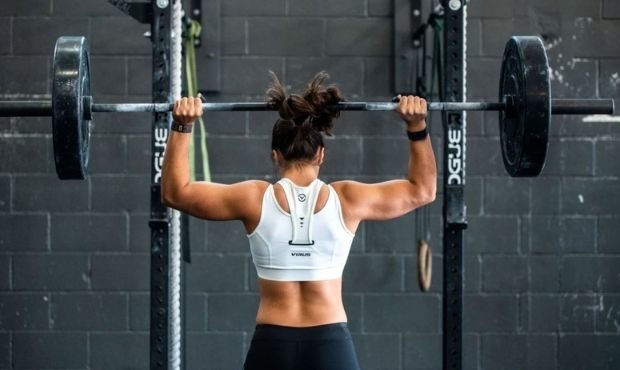New book explains why humans evolved to hate exercise and love sweets
Mar 29, 2021, 3:02 PM | Updated: Mar 30, 2021, 4:32 pm

(Photo by John Arano on Unsplash)
(Photo by John Arano on Unsplash)
If you loathe exercise, don’t worry, you’re merely being a human.
“Exercise is this modern, strange behavior,” said Dan Lieberman, professor of human evolutionary biology at Harvard University. “We never evolved to do it. For millions of years, our ancestors had to work in order to survive, but otherwise they took it easy because they couldn’t spend extra energy going for a needless 5 mile run in the morning. That would be energy better spent taking care of their bodies or having babies.”
“So that little voice in our head that tells us, ‘Take the escalator, don’t take the stairway,’ that’s an ancient instinct that’s sensible and normal,” he added.
Lieberman busts common myths about health and exercise and explores those topics from an evolutionary standpoint in his new book, Exercised: Why Something We Never Evolved To do Is Healthy and Rewarding. But he’s not letting you off the hook: Exercise may not be natural, but you still have to do it.
Lieberman has spent years studying physical activity in people living in unindustrialized areas of Mexico and Kenya.
“You can’t understand human beings by studying just Americans. We are pretty weird,” he said. “If you want to understand human bodies and how they work, we’re interested in how hunter-gatherers use their bodies, and how subsistence farmers use their bodies, and what kinds of work they do, the physical activity they do and how it affects their health.”
That research helps him address popular topics you often see in the news like: “Is sitting the new smoking?”
“It turns out that sitting is really normal and very natural,” Lieberman said. “So hunter-gatherers sit as much as Americans — they sit about 10 hours a day. It turns out there are healthier and less healthy ways to sit. When you sit for long periods of time without getting up, that’s not healthy. So two people can sit 10 hours a day, but one person might get up every 10 minutes or so to pee, or make a cup of tea, and pet the dog, tend the fire, or whatever it is, versus another person who might sit inertly for hour after hour staring at a computer or a television screen. Turns out that long-term inert sitting, where you don’t interrupt it, is much more problematic, hour for hour, than the interrupted sitting.”
He says when you get up and move your body, all kinds of antioxidants and enzymes are released to repair damaged cells, muscles, bones, and DNA. If you don’t exercise, those natural repairs don’t happen and the body begins to break down. Physical activity is a necessary function of staying healthy.
In his book, Lieberman answers a question I’ve always had: Why do we crave foods that are bad for us, like sweets?
“All animals like sweet things because sugar is energy. We naturally like sweet things, it’s ancient,” he said. “Actually, the favorite food of hunter-gatherers in the tropics is honey. They go from tree to tree collecting honey, eating obscene quantities of honey that we would punish our children for eating that much. But these are folks who are hungry and those are the calories that they need to survive. They’re not overweight by any stretch of the imagination.”
“So we evolved to love sugar, and now, of course, we live in this world where we have limitless supplies and we now ask ourselves to control our desire to eat sweet things,” he added.
The idea that people living in primitive societies don’t live as long as western populations with modern medicine isn’t necessarily true. Lieberman says the primitive communities he’s studied have a higher rate of infant mortality and are vulnerable to diseases like malaria, but if they can avoid these things, they can live just as long as an American.
“Heart disease is the number one cause of death for Americans. Cancer is number two and, at the moment, COVID is number three,” Lieberman said. “Turns out that in these non-westernized, nonindustrial populations that are physically active, but also don’t eat processed food, heart disease is more or less nonexistent. Most western doctors think that as Americans get older, their blood pressure goes up, but that’s not true. There are three reasons why people get heart disease: our diet, stress, and physical inactivity.”
He says getting people to change their habits will involve a gentle cultural shift.
“I think we need to be compassionate. Again, exercise is this modern, strange behavior,” he said. “We tell people there’s something wrong with them; they’re lazy for that instinct. People who are exercise addicts have that [same instinct], it’s just that some of us learn ways to overcome that instinct and we should stop shaming and blaming people. Instead, we should help people.”
Listen to Rachel Belle’s James Beard Award nominated podcast, “Your Last Meal,” featuring celebrities like Death Cab For Cutie’s Ben Gibbard, Rainn Wilson, and Greta Gerwig. Follow @yourlastmealpodcast on Instagram!













